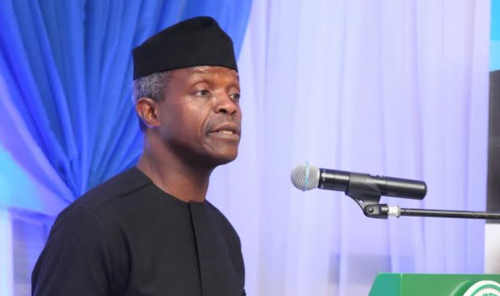
A watershed in transforming the workings of government was reached on Thursday, May 18, 2017, when the Acting President, Professor Yemi Osinbajo, signed three executive orders with the combined aim of promoting the ease of doing business.
The executive orders, among others, direct the ports to be operational round the clock, promote transparency in the conduct of government business, require the government to prioritise locally- made goods and services in government procurements, and also, insist on the timely submission of annual budget estimates by Ministries, Departments, and Agencies of government.
One of the executive orders also binds the MDAs to grant applications for permits, registrations or licences within stipulated times and where not feasible, give reasons for rejection within the stipulated time.
For so long, MDAs with the duty of granting such applications have held the citizenry and even foreign investors to ransom, refusing to act until bribes were paid. Indeed, for too long, government business has been seen as no man’s business and as such promoted a lazy, idle and unproductive culture in the affairs of government. That culture has promoted corruption at the expense of the general good.
We salute the administration for articulating these orders which are expected to revive efficiency, and in due course, put the government on track in promoting the welfare of the citizenry.
However, we are aware that the orders are bound to face resistance from entrenched interests and individuals who benefit from the opaque system that the executive orders want to obliterate. Implementation is key. Otherwise, the Executive Orders will be another wasted government effort.
While the published orders do not spell out detailed measures to observe compliance, we are, however, gladdened by the fact that the Presidency made an effort during an interactive session to sensitise government operatives to the importance it attaches to them. For too long government failed to support doing business and indeed acted as if it were hostile to business.
We are especially delighted by the order to prioritise locally-made goods and services in government procurements. It is even remarkable that the Minister of Information and Culture, Alhaji Lai Mohammed, within three weeks of the issuance of the orders visited a local motor manufacturing company with the promise that government would patronise locally-made vehicle manufacturers.
Nigerians will be extremely delighted to see the heads of the various arms of the Federal Government drive in locally-made vehicles, wear locally made fabrics and eat locally-grown food. This will spin off to the populace and put our economy on the highway to total diversification. We can, and should do the same with Information and Communication Technology which we aver, is a great enabler for economic diversification.
We urge the National Assembly to support the intentions of the orders through the moral and legislative frameworks available to it.
END

Be the first to comment